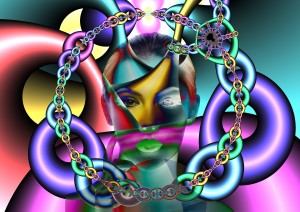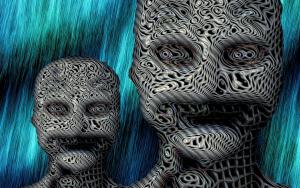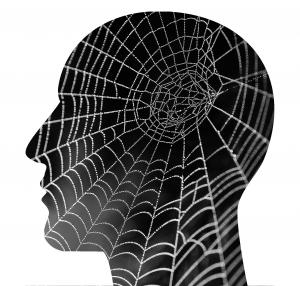
I always hear that suicide is haram and that someone who dies by suicide will be forever punished for this act. In fact, I’ve been lectured about this on numerous occasions. This statement of fact is where the discussion usually ends; in my experience, anyway.
And though I can recall lectures, khutbahs, and khatirahs explaining why suicide is forbidden, I’ve not heard any discussion on how to avoid this as a Muslim living with mental illness. For someone like me, who has a mind that constantly sees suicide as a way out of pain & misery, the lack of advice in this area is detrimental to my health. I’m still looking for practical tips to help me avoid this grave deed.
I’ve had to seek outside assistance for real world advice on healing from suicidal thoughts and ideation. In fact, I’ve learned the most valuable lessons on how to access my Iman and strengthen my connection with Allah during suicidal moments from religious people of other faiths. Over the years I’ve come to realize that refusal to address an issue that’s uncomfortable or frightening doesn’t make it go away. And it doesn’t erase the fact that people struggle with it in their daily lives.
Getting tattoos is haram in Islam as well. However, this is something I’m inclined to do during periods of mania. Indulging in any vice, really. Everything haram or shameful suddenly seems amazing when I’m manic. Nothing is unattainable in those moments. And everything seems like the best idea you’ve ever had. Mania is a saboteur in that way.
Someone once asked why I got tattoos when I was manic. I was defensive at first because I couldn’t rationally explain why I’d do something I knew to be haram. Later, I realized a simple fact. “This is mania!” This is exactly how it works. Mania knows no religion, and certainly is not inclined to respect specific religious edicts and rules. Mania has no moral compass, no understanding of boundaries. Mania is that terrible yet seductive friend, whose only job is to be an enthusiastic cheerleader for all things exciting, dangerous and risky.
Thinking about my experiences with mania, I remembered back to a conversation I’d had years ago with an intake nurse from a nationally acclaimed health organization. The nurse was asking me questions about symptoms I experienced during manic episodes, to qualify me for an important medical study. “During a typical episode: Do you stop sleeping, and for how long? Do you stop eating? Do you dress differently, more provocatively? Do you spend excessive amounts of money or engage in impulse buying? Do you over indulge in drugs/alcohol? Have you gotten tattoos/piercings? Do you engage in risky relationships or dangerous situations?…” I couldn’t listen anymore. The humiliation of embarrassing things I’d done during euphoric manic periods was overwhelming. I panicked. I abruptly cut the nurse off and interjected, “ok I’m a practicing Muslim, ma’am. Some of those questions don’t apply to me. I’m not supposed to do things like that.”
She paused. Then gently said, “bipolar disorder (or any mental illness) doesn’t care what religion you are. Anyone can become ill and experience the symptoms associated with a condition, despite what they believe in. If you’re saying you haven’t done these things, then you haven’t had a true manic episode. I’d further suggest that the diagnosis of bipolar 1 disorder is inappropriate for you. And in that case, you’re ineligible for this study.”
That’s not what I’d intended at all. I just couldn’t face my mistakes in that moment. But missing out on cutting edge treatment simply because I was embarrassed at how mania had impacted my life seemed ill advised. I corrected myself. “Ok. I understand what you’re saying. That makes sense”, I softly admitted. She asked if I’d like to continue the intake process. “Yes.” I whispered. She resumed her questions, and this time I answered honestly.
I’ve learned that what happens when I’m manic is a direct result of my mental illness and not something that has to do with character, morals or manners. It’s the definition of what it means to live with a mental illness, and nothing more. I no longer stigmatize myself as to the mistakes I make during mania, because I realize that I’m doing the best I can within my limitations. That’s all I can ask of myself.












